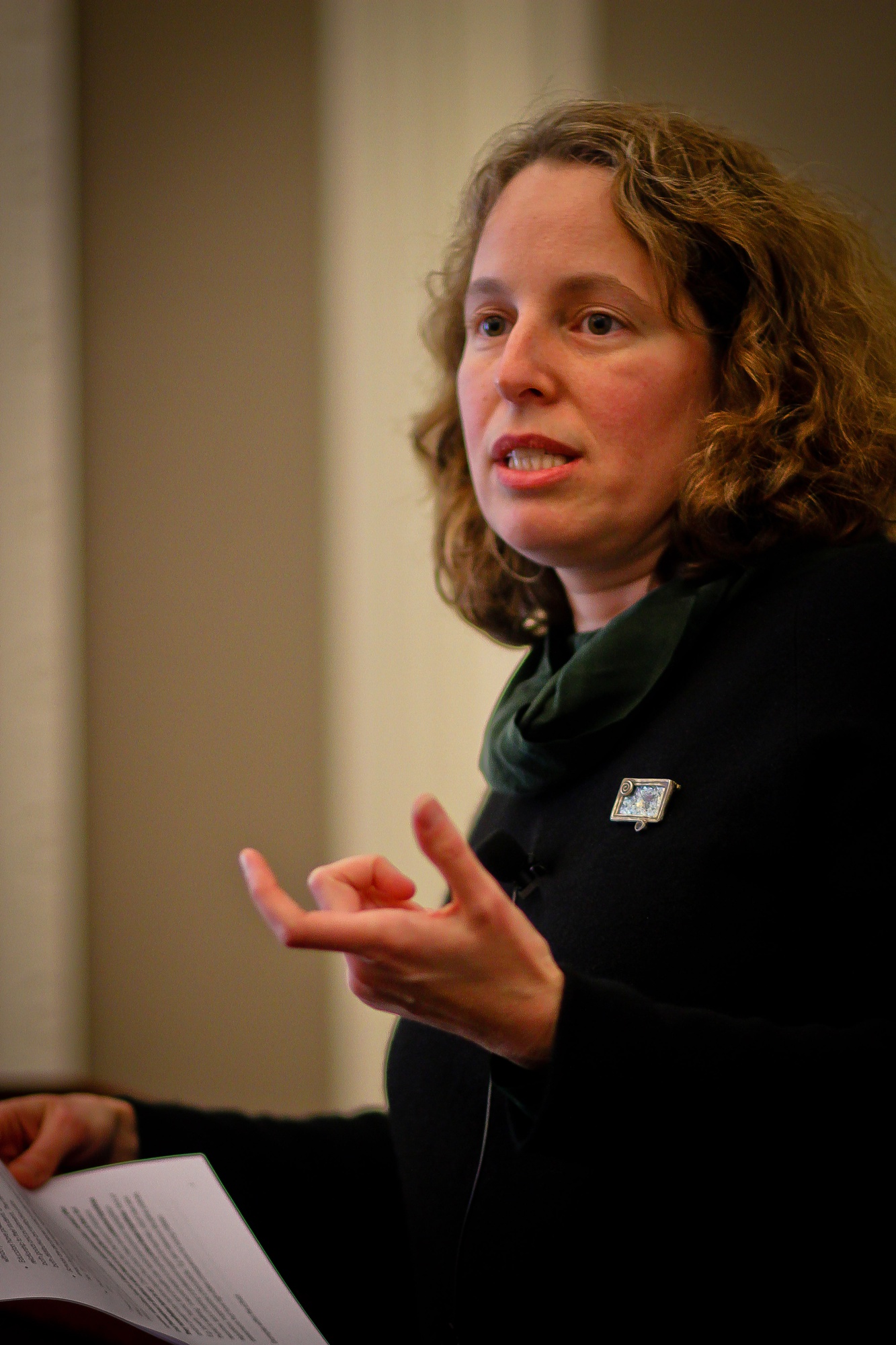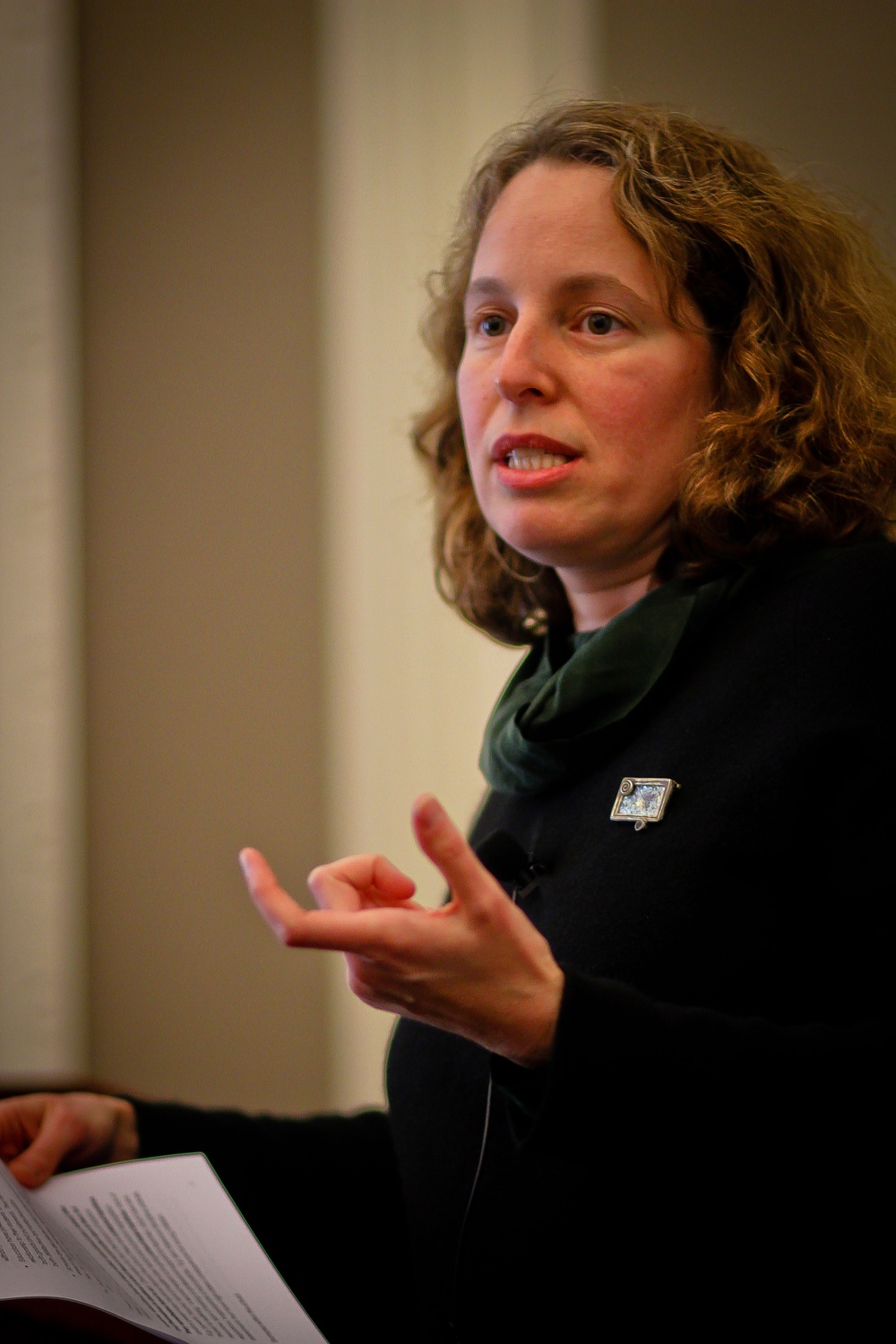
News
Cambridge Residents Slam Council Proposal to Delay Bike Lane Construction

News
‘Gender-Affirming Slay Fest’: Harvard College QSA Hosts Annual Queer Prom

News
‘Not Being Nerds’: Harvard Students Dance to Tinashe at Yardfest

News
Wrongful Death Trial Against CAMHS Employee Over 2015 Student Suicide To Begin Tuesday

News
Cornel West, Harvard Affiliates Call for University to Divest from ‘Israeli Apartheid’ at Rally
Education Professor Unveils Justice Project

Graduate School of Education associate professor Meira Levinson discussed the role of educators as agents of the state and the need for dialogue about justice within the educational sphere at a lecture Tuesday afternoon.
She greeted audience members at the lecture, entitled “Dilemmas of Justice in Schools,” with a controversial case study that featured a freshman student with a history of drug use who was caught with marijuana on school grounds. When school leaders had to determine his punishment, they faced a moral quandary—one that demonstrates, she said, the struggle of educators as they balance considerations of disciplinary actions for individual students with those for the collective student body.
“The problem with educators who care about justice is that they often find themselves in a situation where there are no just actions to think about, but they still have to act,” Levinson said. “It is not clear that there is any action—at least at school-level—that can be fully just.”

Levinson then described her new project, Justice in Schools, which aims to spark dialogue among educators regarding the role of justice when handling students so that they can approach tough decisions like the one raised in the case study.
“My project is not aimed to answer the question of what is just,” Levinson said. “What we are trying to do in part is to help educators, principals, school board members, and policy makers have better conversations about questions of justice.”
Levinson said that because educators become agents of the state—the body that is responsible for enacting justice—when they are hired to work in public schools, teachers are responsible for enacting justice as well.
“[Educators] are often the most prominent and obvious and explicit representatives of the state,” she said.
In the coming months, Levinson’s team will host pilot groups of teachers to experiment with ethical discussions. The project is “very much ideas in progress,” and she is still looking for cases that could prove instructive for teachers, she said.
“The purpose of my project is not to say that ‘A’ actually trumps ‘B’ or ‘B’ trumps ‘A.’ It is to enable educators to have that kind of conversation,” she said.
Levinson said that she and her team plan to implement the project in different schools, adding that they already have several schools that are interested in working with them.
Following the lecture, Andree-Anne Cormier, a visiting fellow at the School of Education, delivered commentary on the presentation, describing the project as “really innovative both for philosophy and education.”
The lecture took place at Longfellow Hall as part of the School of Education’s Civil and Moral Education Initiative.
Want to keep up with breaking news? Subscribe to our email newsletter.
